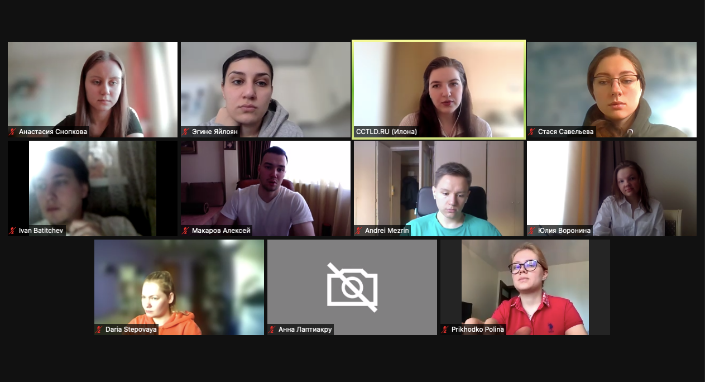
In 2022, the Coordination Center for TLD .RU/.РФ and the Center for Global IT-Cooperation hold again a special course for the youth on Internet Governance. Like last year, the course is timed to coincide with the Russian Internet Governance Forum RIGF 2022. The Special Course is held on the scheduled dates - from March 20 to April 4, despite the RIGF 2022 has been postponed to fall.
Students, PhDs and recent graduates who are interested in the development and use of the Internet and technologies are invited to participate.
118 applications were submitted for the special course. All of them were carefully studied by the organizers. As a result, 65 participants aged 17 to 36 from Moscow, St. Petersburg, Irkutsk, Kazan, Ural, Crimea, Cheboksary and other cities and regions were selected by the organizers.
The participants will receive detailed information on the topics of the RIGF 2022 sections within the course. Students will have an opportunity to discuss the main issues from the program with invited experts, and then to formulate abstracts that reflect the youth's view of the current agenda in the field of Internet Governance. Participants of the special course will present the results of their work in the fall at the final section of RIGF 2022.
The following tracks are identified within the Special Course:
- Digital Cooperation and Sustainable Development Goals
- The Future of Distributed Ledger Technologies
- International Approaches to the Regulation of Artificial Intelligence
- Counteraction of Destructive Content
- Global Digital Tax
- Regulation of Ecosystems
The first two lectures were held on March 20. In the lecture “The Future of Distributed Ledger Technologies”, Konstantin Shurunov, Deputy General Director of “MD Information Systems”, The Moscow Institute of Physics and Technology (MIPT) lecturer, spoke about whether digital currencies are competitors to fiat money and the SWIFT system, whether it is possible to track counterfeit products by using blockchain, why there are no gold on gold exchange markets, and who is the “new type of person” who controls everything, but owns nothing.
He explained the purposes for which distributed ledger technologies were invented, whether it is possible to solve social problems and tasks with their help, whether these technologies really work exactly as intended, and whether there is a possibility to abuse it.
As part of the second lecture “Digital Cooperation and Sustainable Development Goals”, Andrey Kuleshov, an expert analyst of the Center for Global IT-Cooperation, spoke about the importance of digital cooperation in achieving the Sustainable Development Goals (SDGs) from the UN 2030 agenda, explained the difference between the SDGs and the approach ESG, and also outlined Russia's priorities in the framework of the implementation of the SDGs.
The next lectures "Counteraction of Destructive Content in the World" and "Regulation of Ecosystems" by the experts of the Legal Bureau "Omega" and RAEC will be held on Sunday, March 27.



